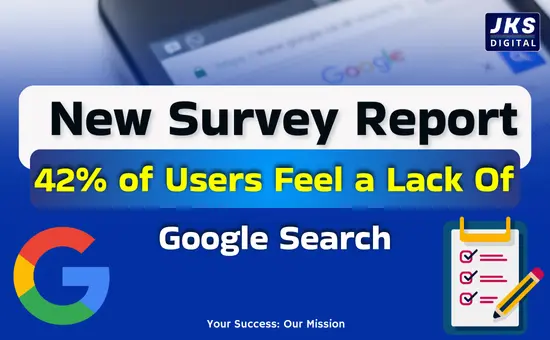Should You Use ChatGPT for Keyword Research:- In the world of digital marketing, keyword research forms the backbone of any successful SEO strategy. Whether you’re a blogger, e-commerce brand, or content strategist, understanding what people are searching for—and how to appear in front of them—is essential. As AI tools like ChatGPT continue to evolve, a growing number of marketers and business owners are questioning whether these technologies can serve as a reliable alternative—or valuable addition—to traditional keyword research platforms.

This article explores the pros, cons, and practical use-cases of using ChatGPT for keyword research—while offering a balanced view based on both AI capability and human experience.
What Is Keyword Research?
Keyword research involves identifying the search terms people use in search engines like Google, Bing, and YouTube. These keywords help businesses understand what their audience wants and tailor their content accordingly.
But keyword research isn’t just about finding words with high search volume. It’s also about:
- Understanding user intent
- Identifying ranking difficulty
- Mapping content to the buyer’s journey
- Staying ahead of trending topics
This traditionally requires data-heavy tools like Google Keyword Planner, SEMrush, Ahrefs, or Ubersuggest. These platforms offer detailed metrics including search volume, cost-per-click (CPC), keyword difficulty, and competitive intelligence.
Can ChatGPT Be Used for Keyword Research?
ChatGPT, developed by OpenAI, is a language model trained on diverse internet text. It can generate keyword suggestions, brainstorm topic ideas, cluster keywords by themes, and simulate searcher intent. However, it lacks access to real-time SEO data like search volume or difficulty scores—unless integrated with plugins or third-party APIs.
Still, its speed, creativity, and content ideation capabilities make it a potentially valuable tool—especially in the early stages of content planning.
Pros of Using ChatGPT for Keyword Research

1. Fast Ideation and Brainstorming
ChatGPT can generate long lists of keyword ideas within seconds. Whether you’re working on a tight deadline or exploring a new niche, AI can significantly reduce the time it takes to compile starting ideas.
Example: Ask ChatGPT, “Suggest 20 long-tail keywords related to eco-friendly kitchen products,” and it will provide a diverse, usable list almost instantly.
2. Generates Long-Tail and Conversational Keywords
Modern SEO isn’t just about “best laptops” or “travel insurance.” Users are searching in natural, conversational tones:
- “What is the best laptop for graphic designers under ₹70,000?”
- “How to buy travel insurance for Schengen visa?”
ChatGPT is highly capable of generating such long-tail phrases, which are often easier to rank for and more specific to user intent.
3. Clustering and Content Strategy Support

Beyond keywords, ChatGPT can organize terms into themes or content clusters—essential for building topical authority. For example, a cluster for “digital marketing” might include:
- Social media marketing
- Email automation tools
- SEO for local businesses
- PPC campaign tracking
This is especially useful for planning content calendars or building siloed blog structures.
4. Great for Beginners and Solopreneurs
If you’re just starting your SEO journey, ChatGPT can guide you in understanding search behavior, developing blog outlines, creating FAQs, or even explaining SEO concepts in plain English. It feels like having a knowledgeable helper on standby, ready to support your ideas at any moment.
Cons of Using ChatGPT for Keyword Research
1. No Live Search Volume or Difficulty Metrics
This is the biggest limitation. ChatGPT does not have access to live Google data, so it cannot tell you:
- How often a keyword is searched
- How hard it is to rank for that keyword
- The CPC value for paid ads
These are crucial metrics for decision-making in professional SEO campaigns.
2. Risk of Inaccuracy or Fabricated Suggestions

Since ChatGPT predicts based on language patterns, some keywords it generates may:
- Not exist as search queries
- Be grammatically correct but unnatural to searchers
- Miss local or trending variations
Without cross-checking with actual keyword tools, you might end up targeting irrelevant or low-traffic terms.
3. Cannot Replace Specialized SEO Tools
While ChatGPT can assist, it’s not a substitute for industry-leading tools like Ahrefs, SEMrush, or Google Search Console. These platforms offer backlink analysis, SERP features, competitor monitoring, and historical data—things that AI cannot emulate out of the box.
4. Over-Reliance May Limit Creativity
While ChatGPT can provide endless suggestions, it might encourage over-dependence. It’s essential to combine AI insights with human intuition and domain expertise. After all, real creativity comes from understanding the why behind search behavior—not just the words themselves.
Pro Tips for Using ChatGPT in Keyword Research

Use it for ideation, not validation
Generate keyword and topic ideas with ChatGPT, but always validate them through a tool like Google Trends, Ubersuggest, or SEMrush.
Prompt creatively
Don’t just ask for “best keywords for real estate.” Try, “Give me 15 blog title ideas targeting luxury real estate buyers in Mumbai.” The more context you give, the better the output.
Build topical maps
Ask ChatGPT to create a keyword cluster and then map each cluster to a different page or article. This helps with SEO siloing and improves topical authority.
Read Also:-Laravel vs WordPress – Which One to Choose in 2025 and Why? Best
Use it for buyer intent mapping
Try prompts like, “Give me keywords used by people who are ready to purchase noise-cancelling headphones.” This helps target bottom-of-the-funnel traffic.
Combine with People Also Ask (PAA) queries

Ask ChatGPT, “What questions might someone have about registering a private limited company in India? Then cross-check and align those with real ‘People Also Ask’ queries appearing in current Google search results.
When to Use ChatGPT vs. Traditional Tools
| Task | ChatGPT | SEO Tools |
|---|---|---|
| Brainstorming | Excellent | Good |
| Data Accuracy | Low | High |
| Search Volume | Not available | Available |
| Keyword Difficulty | Not available | Available |
| Trend Analysis | Limited | Strong |
| Long-Tail Keywords | Very good | Good |
| SERP Features Analysis | Not available | Available |
Use ChatGPT for early-stage exploration and creativity. Rely on SEO tools when precision and data-driven strategy are needed.
Read Also:-Powerful Online Income Ideas for Students: Smart Ways to Earn While You Learn
Final Verdict
ChatGPT is a powerful ally in your SEO toolkit, especially for content ideation, long-tail keyword suggestions, and strategy planning. However, it should be complemented with real-time data tools to ensure your keyword strategy is effective, measurable, and competitive.
Think of ChatGPT as your creative brainstorming partner—not your final decision-maker.






